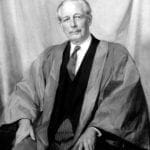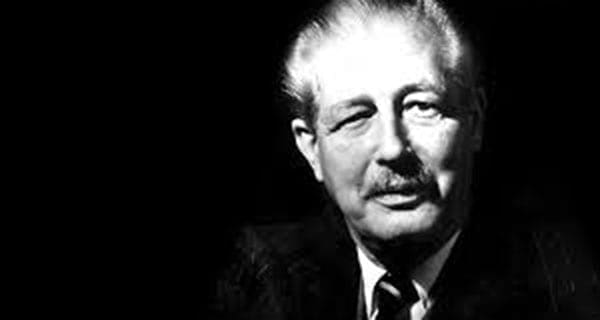 Harold Macmillan, the onetime British prime minister, popped into mind a few days ago. Watching the problems in extricating the United Kingdom from the European Union reminded me that a humiliating failure to secure entry to that same entity’s predecessor was one of the things that drove Macmillan from office.
Harold Macmillan, the onetime British prime minister, popped into mind a few days ago. Watching the problems in extricating the United Kingdom from the European Union reminded me that a humiliating failure to secure entry to that same entity’s predecessor was one of the things that drove Macmillan from office.
Macmillan (1894-1986) was prime minister between 1957 and 1963. He fought one general election during that period, picking up an additional 20 seats in the process. Although intended sarcastically, the sobriquet “Supermac” seemed to fit.
Macmillan has been characterized as “psychologically interesting,” which is an apt descriptor of someone who wasn’t what he seemed to be. Theatrical in style, you could call him either a welter of contradictions or a devious operator. Perhaps he was both.
Notwithstanding his unflappable image, Macmillan had suffered a nervous breakdown in his 30s. And despite projecting the aura of an Edwardian aristocrat, he was actually a commoner. And his apparent affable, avuncular nature masked a lethal ruthlessness.
Macmillan’s paternal grandfather, Daniel, was born into a Scottish crofting family in the Isle of Arran. In the mid-19th century, Daniel founded the family publishing business with his brother. Successful financially and international in scope, Macmillan Publishers remained a family owned business until the late 20th century. Macmillan himself became chairman after his retirement from politics.

Harold Macmillan
Like most men of his age, Macmillan volunteered for service on the outbreak of the First World War. And there was nothing nominal about his participation. Serving on the front lines, he was wounded three times, the final occasion in 1916 at the Battle of the Somme, where his wound was sufficiently serious to send him to hospital for the duration.
Macmillan married into the aristocratic Cavendish family in 1920 but it was a less than perfect union. Within a decade, his wife began a lifelong affair with a political colleague. Everyone who mattered knew the story and Macmillan was humiliated. In his early 80s, he was said to still agonize over the parentage of his youngest daughter.
Although first elected to parliament as a Conservative in 1924, Macmillan didn’t acquire any significant status until the Second World War. And while he wasn’t a first-rank player then, he did establish a positive relationship with Gen. Dwight Eisenhower. This was to prove very useful in the late 1950s when Eisenhower was U.S. president and Macmillan became prime minister.
The post-war Conservative ascendance, beginning in 1951, was when Macmillan came into his own. There were four cabinet positions – minister of Housing and Local Government, minister of Defence, Foreign Secretary, and Chancellor of the Exchequer – before he manoeuvred to replace Anthony Eden as prime minister in the wake of the Suez debacle.
Observers of Macmillan’s flexibility underscore his movement over the Suez Canal crisis. Initially, he was a strong advocate of military intervention but changed his tune after American rage threatened to sink sterling unless Britain withdrew its forces from Egypt. When the dust settled, Eden was out and Macmillan was in.
This capacity for self-interested ruthlessness was evident again in 1962’s infamous “Night of the Long Knives.” Facing declining popularity, Macmillan fired eight cabinet ministers. As one critic tartly put it, “greater love hath no man than this, than to lay down his friends for his life.”
Politically, Macmillan was what Canadians would call a Red Tory, a man of the genteel centre-left.
Macmillan fully accepted the post-war settlement of a mixed economy and a strong welfare state; while actively repairing the American alliance and promoting a British nuclear deterrent, he was an advocate of negotiations with the Soviet Union; whether by conviction or practicality, he aggressively pushed decolonization; and he sought to gain United Kingdom entry into what was then the European Common Market.
Suddenly, though, Macmillan was a political anachronism.
The social changes facilitated by post-war affluence and baby boom demographics left him looking old fashioned, even quaint. And the combination of European humiliation and the Profumo sex scandal finished the job. On Oct. 18, 1963, Macmillan resigned as prime minister, ostensibly for health reasons.
Historical reputation is a funny thing, much given to the whims of academic fashion. Critics point out that Macmillan failed to grapple with the problems that came home to roost in the quarter-century following his departure.
Then again, neither did any of his contemporaries.
Pat Murphy casts a history buff’s eye at the goings-on in our world. Never cynical – well, perhaps just a little bit.
The views, opinions and positions expressed by columnists and contributors are the author’s alone. They do not inherently or expressly reflect the views, opinions and/or positions of our publication.


